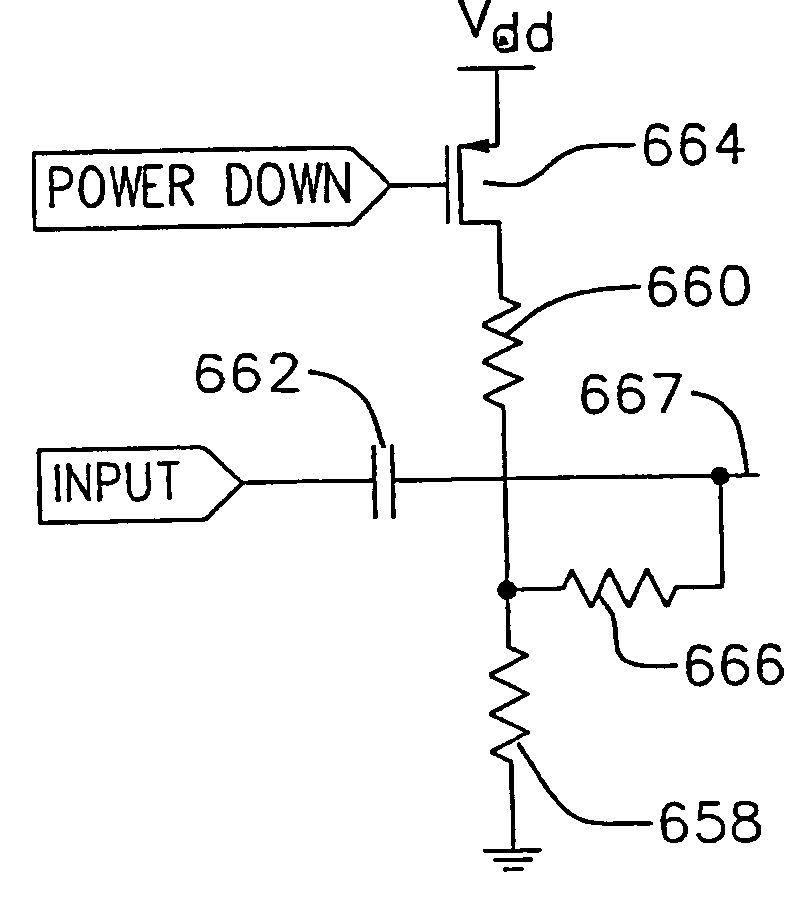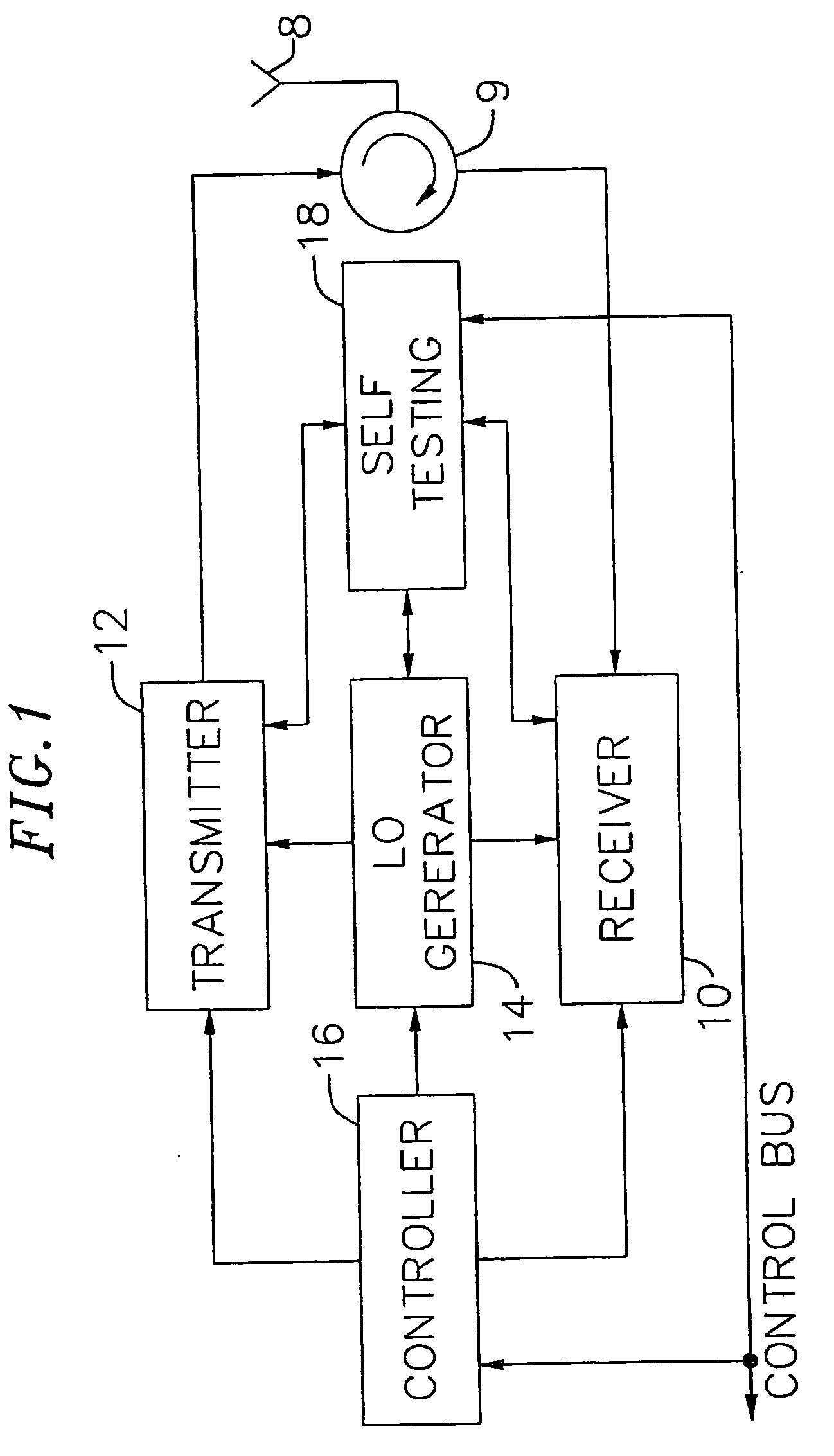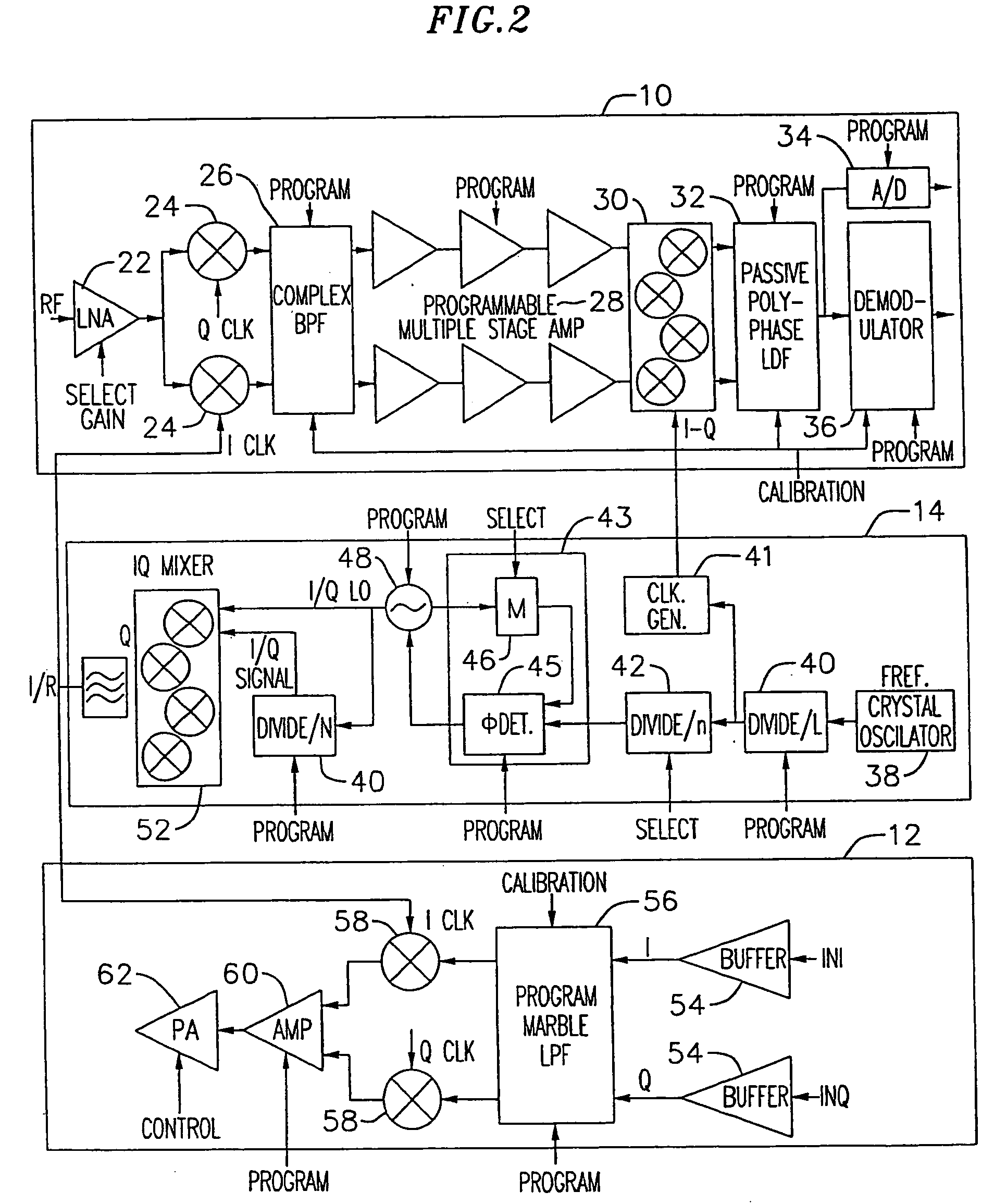Adaptive radio transceiver with noise suppression
a radio transceiver and adaptive technology, applied in the field of telecommunication systems, can solve the problems of difficult integration of the transceiver into a single ic, many applications are not fully commercialized, etc., and achieve the effect of reducing power consumption and minimizing adverse effects
- Summary
- Abstract
- Description
- Claims
- Application Information
AI Technical Summary
Benefits of technology
Problems solved by technology
Method used
Image
Examples
first embodiment
[0284]FIG. 30h is a block diagram of a subsampling mixer for high frequencies. A differential RF input +IN, −IN is applied to a differential pair amplifier 101. The differential pair amplifier produces two outputs A OUT, B OUT. Differential pair amplifier output A OUT is applied to a track and hold subsampling mixer 103. Also applied to the track and hold subsampling mixer 103 is a differential local oscillator signal +LO, −LO. The track and hold subsampling mixer 103 produces two outputs OUT 1 and OUT 2.
[0285] Differential pair amplifier 101 output B OUT is applied to a second track and hold subsampling mixer 105. Also applied to the second track and hold subsampling mixer 105 is the differential local oscillator 109 output +LO and −LO. The second track and hold subsampling mixer has two outputs OUT 3 and OUT 4.
[0286] The four outputs OUT 1, OUT 2, OUT 3, and OUT 4 are applied to a current combining buffer 107. Current combining buffer 107 produces a differential IF output +OUT −O...
second embodiment
[0301]FIG. 301 is a block diagram of a Subsampling Mixer for high frequencies. An RF input +IN, −IN is coupled to a track and hold circuit 113. The track and hold circuit includes three outputs OUT 1, OUT 2, OUT 3, and OUT 4. Track and hold outputs OUT 1 through OUT 4 are applied to a sample and hold and current combining circuit 115. The sample and hold and current combining circuit provides IF outputs +OUT and −OUT.
[0302] The conventionally constructed local oscillator providing differential outputs +LO and −LO is used to clock track and hold circuit 113 and the sample and hold and current combining circuit 115. Differential signals +LO and −LO are simultaneously applied to the track and hold circuit 113 and the sample hold and current combining circuit 115.
[0303] The linearity of the first embodiment tends to be improved over that of the second embodiment. However, the sample and hold 115 of the second embodiment when analyzed in the frequency domain pushes all of the distortion...
PUM
 Login to View More
Login to View More Abstract
Description
Claims
Application Information
 Login to View More
Login to View More - R&D
- Intellectual Property
- Life Sciences
- Materials
- Tech Scout
- Unparalleled Data Quality
- Higher Quality Content
- 60% Fewer Hallucinations
Browse by: Latest US Patents, China's latest patents, Technical Efficacy Thesaurus, Application Domain, Technology Topic, Popular Technical Reports.
© 2025 PatSnap. All rights reserved.Legal|Privacy policy|Modern Slavery Act Transparency Statement|Sitemap|About US| Contact US: help@patsnap.com



